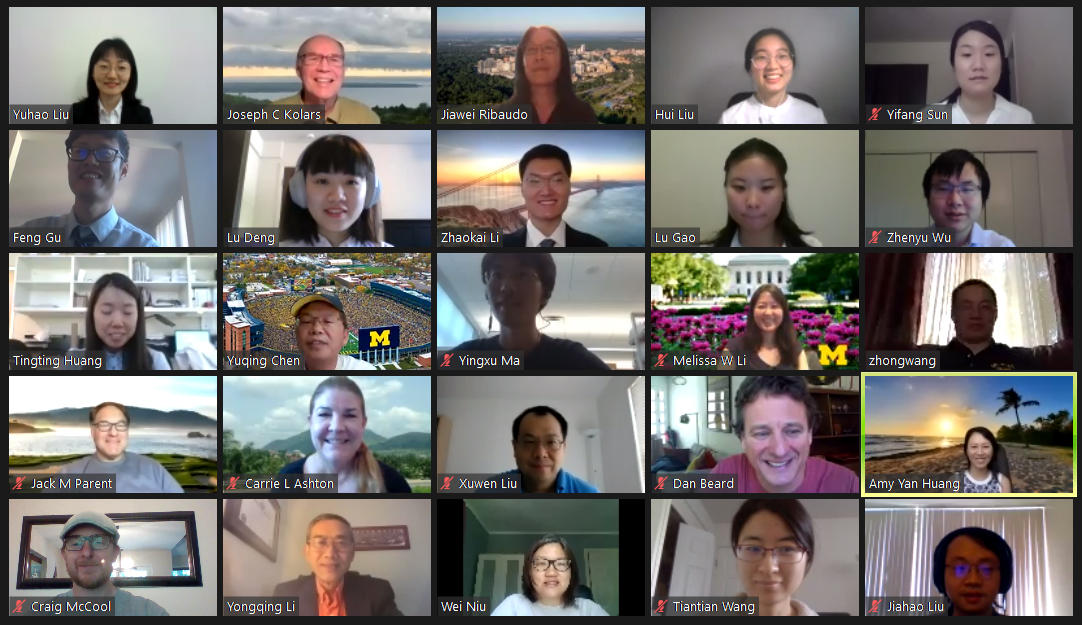
Now six years old, the partnership between UMMS and Central South University Xiangya School of Medicine has provided in-depth research experience to more than 40 participants, selected from Xiangya’s top medical students.
“They offer this program because they want us to be leading physician-scientists,” said Hui Liu, who has been in Ann Arbor since 2018. She and nine other Xiangya students recently gave their final research presentations before an audience of program leaders and mentors as well their fellow participants, the culmination of their training.
“I really wanted to grab this opportunity to see how research is done in another part of the world. Before, I really didn’t know what research was about,” Liu said.
Funded entirely by Xiangya, the program sends MD students near the end of their six-year medical school program to the United States for two years of research training. UMMS is one of a handful of participating US institutions. Once the two years is over, students return to complete their MD and begin their career in China.
Associate Professor of Cardiac Surgery Bo Yang, MD, an alumnus of Xiangya Medical School, has been a participating mentor since the program’s outset and has overseen four visiting Xiangya students in his lab to date.
“I am passionate about my old medical school and I know the quality of the students, so I was eager to be involved from the beginning,” he said. “As a junior faculty who did not have a large amount of funding to recruit post-docs, I needed people to work in my lab. These students are hard-working self-starters. Hosting them was hugely beneficial for me in my career. I’ve since received two R01 grants based on the work and preliminary data generated by the Xiangya students.”
Students are placed with mentors across a variety of disciplines. Yang’s group conducts research into the genetic indicators of bicuspid aortic valve disease. Other students worked on projects about retinal disease, obesity, epilepsy, and more. Hui has worked in the lab of Associate Professor of Surgery and Microbiology & Immunology Marilia Cascalho, MD, PhD, on a project to create a new “mutable” HIV vaccine with the ability to anticipate viral evolution and produce broadly effective antibodies across multiple strains and variants.
“My initial interest was in transplant research, so I was unexpected to be working on this immunology project. But I have learned so much and see how immunology can be involved with many aspects of medicine,” Hui said. “I still want to be a surgeon, but if I get the opportunity to do research later, I will try to relate my research to immunology.”
UMMS has welcomed new groups of Xiangya students each year since the partnership’s launch in 2016. Seven new participants have been selected for 2020, but the COVID-19 pandemic has delayed their arrival, possibly until next year. Still, “UMMS is eager to welcome the new group of students once the travel restrictions are lifted,” said Joseph Kolars, Senior Associate Dean for Education and Global Initiatives.
“Now more than ever, our international collaborations are so crucial. It’s easy to get distracted by the difficulties of the moment, but people committed to good science and good collaboration will persevere,” said Kolars, MD. “I’m more motivated than ever to working on this important partnership.”
